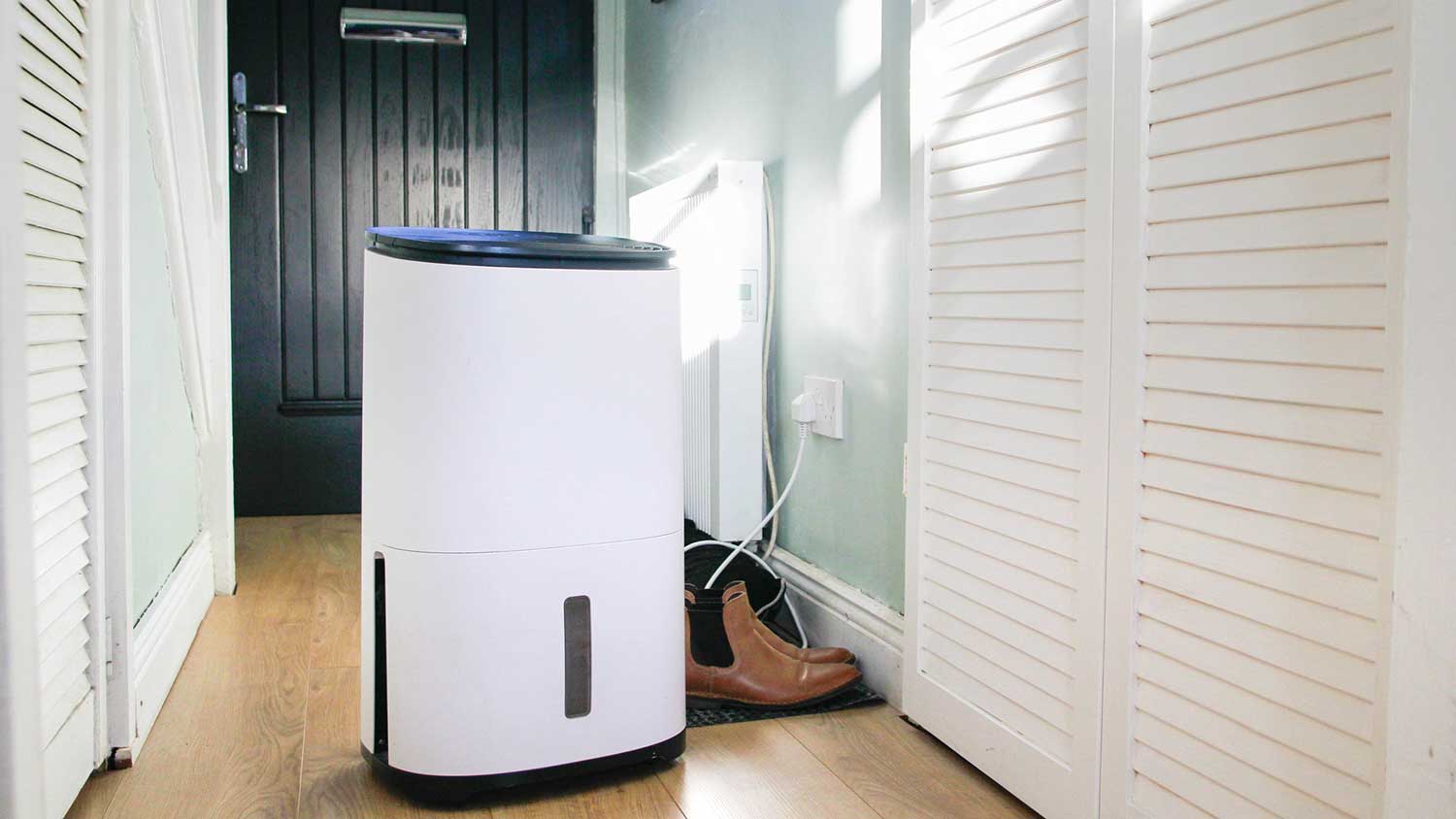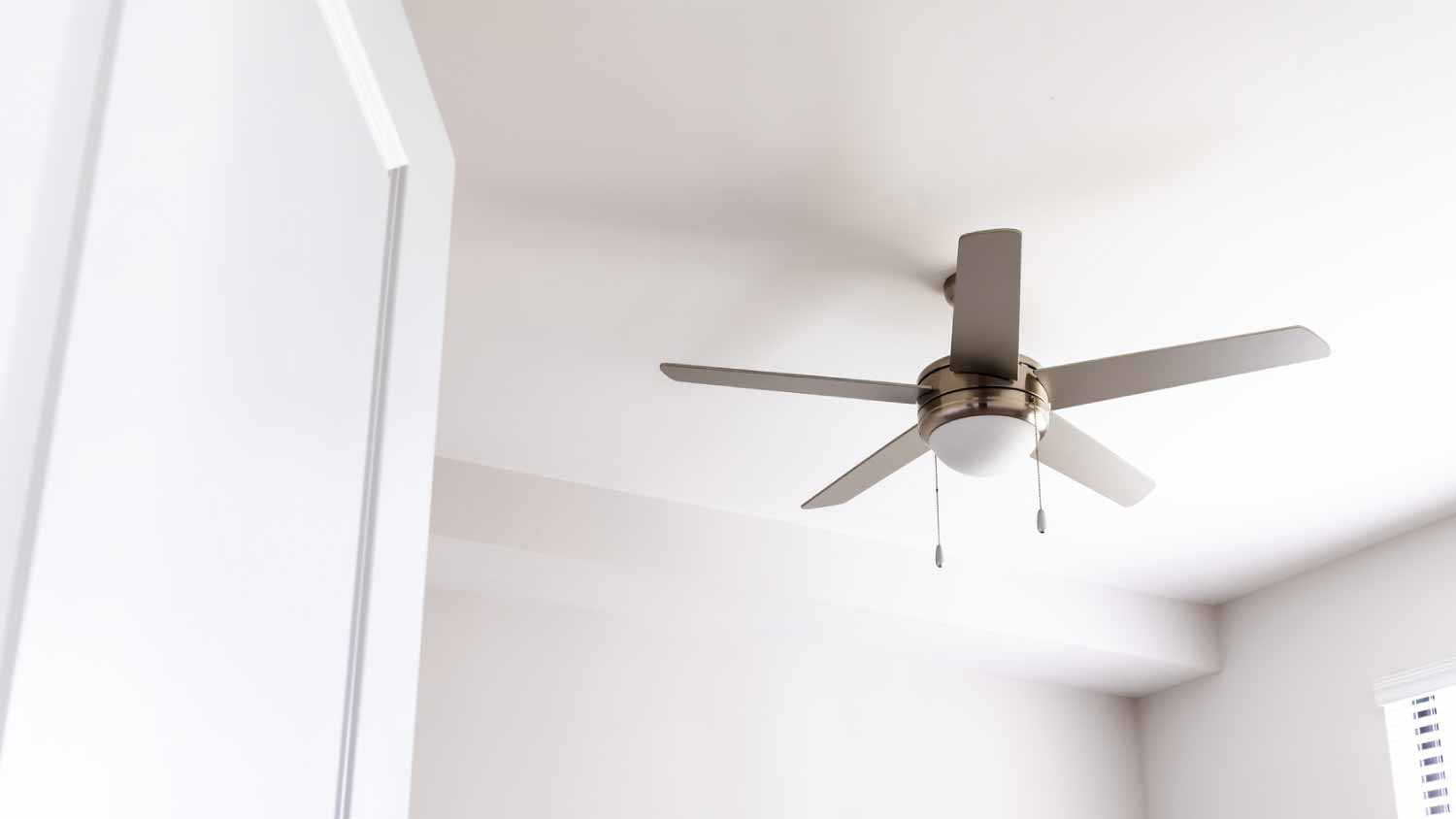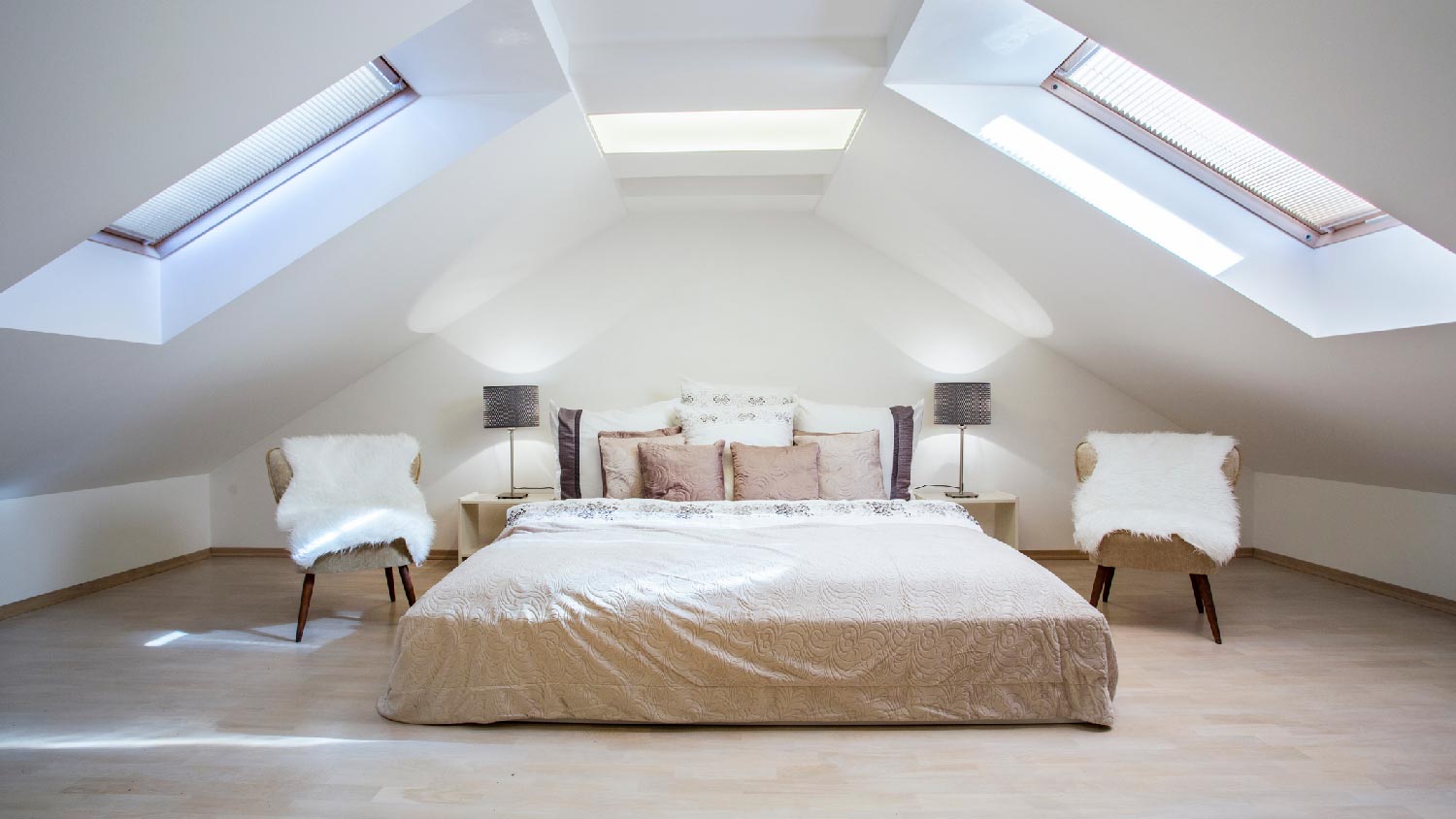Two-Stage Air Conditioner: How Does It Work and Is It Worth It?
When it comes to air conditioners, two is better than one


Two-stage air conditioners have both a low and high setting
This helps increase energy efficiency and temperature control
Installing a new AC unit costs between $3,800 to $7,500
Two-stage air conditioners cost $500 to $2,500 more than traditional air conditioners
Two-stage air conditioners tend to have a longer life span than traditional ACs
Have you ever met someone who tries too hard to be cool? Well, now you can add single-stage air conditioners to that list. Traditional air conditioners have a knack for running at full speed until they take a break. This leads to blasts of cold air, followed by stuffy warm air the second the unit shuts off. The solution? A tried and true cooling system that provides the ultimate experience in comfort and energy efficiency.
Two-staged air conditioners offer a more nuanced—and efficient—approach to keeping it cool. Many homeowners find the upfront splurge worth the comfort and quality.
What Is a Two-Stage Air Conditioner?
A two-stage air conditioner is an air conditioner that has two levels of operation: it can run on high and it can run on low. Like a two-stage furnace, this is made possible by the compressor:
If your room’s temperature is similar to the temperature on your thermostat, the compressor will run at a low speed.
If your room is drastically warmer than your thermostat, the compressor will automatically kick into high gear.
Two-stage air conditioners spend about 80% of their time on the lower setting, which runs at about 60% to 70% capacity. This translates to energy savings and a wealth of other benefits.
How Does a Two-Stage Air Conditioner Work?
Two-stage air conditioners have compressors with two speeds, compared to single-stage AC compressors with only one speed. In other words, instead of having an AC compressor running at 100% capacity all the time, this type of air conditioner will switch between low and high speeds.
To better understand how that works, let’s assume that your room is 77 degrees Fahrenheit, and you set your thermostat down to 70 degrees Fahrenheit. When the system first kicks on, the compressor runs on low.
However, if the room doesn’t cool down to 70 degrees Fahrenheit with the compressor running on low, the system will activate the higher compressor speed.
Two-Stage Air Conditioner vs. Single-Stage Air Conditioner
When you think of an air conditioner, you’re probably thinking of a single-stage air conditioner. Unlike two-stage air conditioners, single-stage air conditioners have a compressor with only one setting. This means:
The unit is either on or it’s off with no inbetween
It runs at 100% capacity whether it has to cool your room by 20 degrees or by 1 degree
When the room is cool, the compressor turns off, and the cycle repeats.
In contrast, two-stage air conditioners largely avoid the traditional on-off cycle. They run almost continuously—but they’re on the lower setting about 80% of the time. This helps them avoid the temperature fluctuations of traditional air conditioners while using less energy. You also don’t get the same loud hum.
Benefits of Two-Stage Air Conditioners
Two-stage air conditioners have a simple premise. Your cooling system probably needs to work harder on a hot summer day, but it doesn’t really need the same chutzpah in mild temperatures. This approach to cooling translates to some major benefits, which are worth considering when you’re looking at buying a new HVAC system.
Higher Energy Efficiency

Since two-stage air conditioners operate at 60% to 70% capacity most of the time, they have a higher SEER (Seasonal Energy Efficiency Ratio) rating than traditional ACs. In other words, they use less energy to cool your home. This will lower your monthly electric bill, and the savings could be significant for those in hot climates.
Improved Temperature Control
Because two-stage air conditioners operate almost continuously, they’re not subject to the same temperature fluctuations you might notice with a single-stage air conditioner.
Better Humidity Control
Two-stage air conditioners are also better at controlling humidity. Without the constant on-off cycle, the AC coils have more time to pull water vapor into the system and evaporate it (rather than shutting off, then trying to play catch-up).
Longer Life Span
On average, an air conditioning unit lasts 15 to 20 years. Two-stage air conditioners, which usually have higher quality components, tend to reach the higher end of that range—and can even live beyond it when regularly serviced. It all comes down to wear and tear. The compressor isn’t under the same kind of stress. A single-stage compressor is constantly turning on and off, which wears the system down. With a two-stage AC, you might want to have a good AC repair company on hand, but you may rarely need to call them.
Drawbacks of Two-Stage Air Conditioners
Two-stage air conditioners generally have lower lifetime costs than traditional AC units, but that doesn’t mean they’re less expensive. Cost is actually the main drawback. Two-stage air conditioners typically cost 30% more upfront—which could mean that you’re shelling out anywhere from $500 to $2,500 more. That’s on top of the already high cost of installing the AC.
Additionally, two-stage air conditioners still do have an off-cycle. Though they don’t turn off as much as single-stage air conditioners, they’re not completely continuous like a variable speed air conditioner. Variable-speed air conditioners, which have compressors that can run at multiple speeds, are even more efficient.
Are Two-Stage Air Conditioners Worth It?

If you have the upfront budget, a two-stage air conditioner is more efficient across the board. It reduces energy consumption and has better control over temperature and humidity—but not everyone can spend extra money.
Installing a Two-Stage Air Conditioner
It’s best to hire a local air conditioning installer rather than attempting to install your own AC unit. Installations require ductwork, which means you’ll have to start opening up walls. An improper installation could be a hazard. Beyond that, the quality of the AC installation actually has a lot to do with efficiency. A bad installation can negate the high SEER rating of a two-stage air conditioner.
While you’re getting your AC installed, you may also want to consider replacing your furnace at the same time. This can come with significant cost benefits.
Mariel Loveland contributed to this piece.





- Furnace Repair
- Air Conditioning Repair
- HVAC Repairs
- Furnace Installation
- Wood & Pellet Stove Repair
- Dehumidifier & Humidifier Repair
- Heat Pump Companies
- Swamp Cooler Repair
- Wood Stove Services
- HVAC Companies
- Commercial A/C Repair
- Geothermal Installation
- Air Conditioning Installation
- Boiler Repair
- 24 Hour Furnace Repair
- Geothermal Repair
- Heat Pump Repair
- Humidifier Installation
- Thermostat Repair
- Thermostat Installation
- Nest Installation
- Heating & Cooling
- Heating Repair
- Furnace Cleaning
- Furnace Tune-Up
- HVAC Technicians
- Subcontractors
- Furnace Maintenance
- Plumbing & Heating Companies
- Wood Stove Inspection
- Mini Split Installation
- Wall Heater Repair
- Duct Installers
- 9 Types of Air Conditioners: Pros, Cons, and How to Choose
- Two-Stage vs. Single-Stage Furnaces: Which Makes the Most Sense for You?
- Heat Pump vs. Air Conditioner: What’s the Difference?
- Are Portable Air Conditioners Worth the Money?
- How Long Does It Take to Replace an AC Unit? 5 Factors That Impact the Timeline
- Adding Central Air to Your House: Can You Install AC in Your Home?
- 11 Reasons Your AC Is Blowing Hot Air
- How Do I Keep My Home's Second Floor Cool?
- Do Air Conditioners Use Water? They Don’t, So Here’s What That Puddle Is
- HVAC Terms: Get Familiar With These Essential Heating and Cooling Concepts










